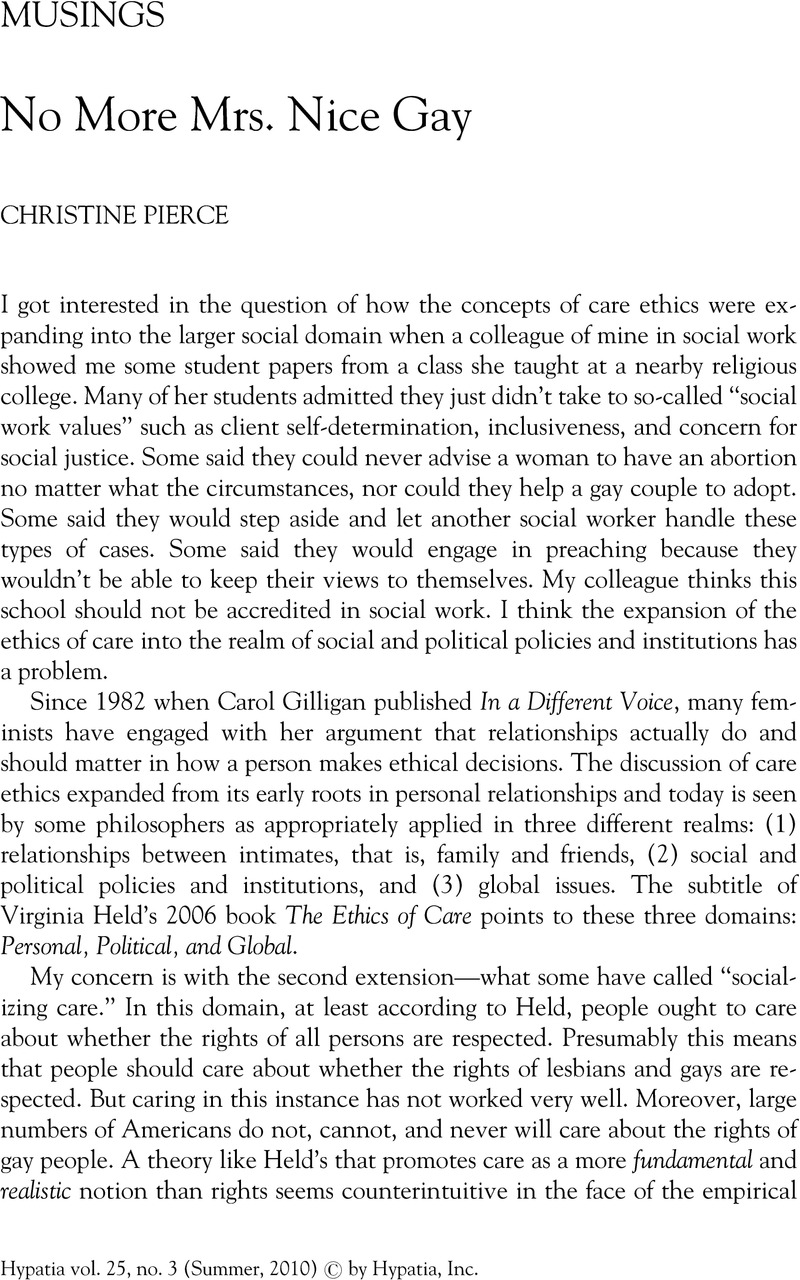No CrossRef data available.
Article contents
No More Mrs. Nice Gay
Published online by Cambridge University Press: 25 March 2020
Abstract
An abstract is not available for this content so a preview has been provided. Please use the Get access link above for information on how to access this content.

- Type
- OPEN ISSUE CONTENT
- Information
- Copyright
- Copyright © 2010 by Hypatia, Inc.
References
Card, Claudia. 1990. Caring and evil. Hypatia: A Journal of Feminist Philosophy 5 (2): 101–08.CrossRefGoogle Scholar
Gilligan, Carol. 1982. In a different voice: Psychological theory and women's development. Cambridge, Mass.: Harvard University Press.Google Scholar
Held, Virginia. 2006. The ethics of care: Personal, political, and global. New York: Oxford University Press.Google Scholar
Kohlberg, Lawrence. 1981. The philosophy of moral development. San Francisco: Harper and Row.Google Scholar
Lakoff, George. 2008. The political mind: Why you can't understand 21st‐century American politics with an 18th‐century brain. New York: Viking.Google Scholar
Meyers, Diana Tietjens. 1994. Subjection & subjectivity: Psychoanalytic feminism & moral philosophy. New York: Routledge.Google Scholar
Noddings, Nel. 2002. Starting at home: Caring and social policy. Berkeley: University of California Press.Google Scholar
Pierce, Charles P. 2009. Idiot America: How stupidity became a virtue in the land of the free. New York: Doubleday, Random House.Google Scholar
Prinz, Jesse J. 2007. The emotional construction of morals. New York: Oxford University Press.Google Scholar
Taibbi, Matt. 2008. The great derangement: A terrifying true story of war, politics, and religion at the twilight of the American empire. New York: Spiegel & Grau.Google Scholar
Trout, J. D. 2009. The empathy gap: Building bridges to the good life and the good society. New York: Viking.Google Scholar


